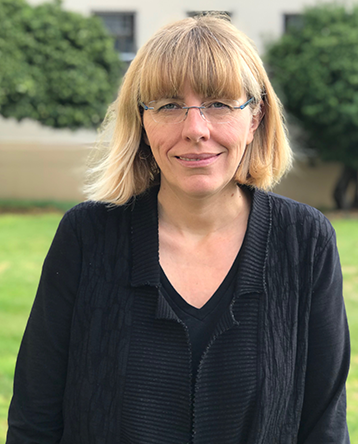Corina Pasareanu
Principal Systems Scientist, CyLab
Courtesy Appointment, Electrical and Computer Engineering
Principal Systems Scientist, CyLab
Courtesy Appointment, Electrical and Computer Engineering

Corina Pasareanu is an ACM Fellow and an IEEE ASE Fellow, working at NASA Ames. She is affiliated with KBR and Carnegie Mellon University's CyLab. Her research interests include model checking, symbolic execution, compositional verification, probabilistic software analysis, autonomy, and security. She is the recipient of several awards, including ETAPS Test of Time Award (2021), ASE Most Influential Paper Award (2018), ESEC/FSE Test of Time Award (2018), ISSTA Retrospective Impact Paper Award (2018), ACM Impact Paper Award (2010), and ICSE 2010 Most Influential Paper Award (2010). She has been serving as Program/General Chair for several conferences including: ICSE 2025, SEFM 2021, FM 2021, ICST 2020, ISSTA 2020, ESEC/FSE 2018, CAV 2015, ISSTA 2014, ASE 2011, and NFM 2009. She is on the steering committees for the ICSE, TACAS and ISSTA conferences. She is currently an associate editor for IEEE TSE and for STTT, Springer Nature.
Projects:
LLM Self-Defense Against Adversarial Attacks for Coding Tasks (CyLab, PI), Trinity: Neurosymbolic Learning and Reasoning (DARPA, CMU PI), Enabling One-Line Rust Verification with Program Synthesis (AWS, Co-PI), Machine Learning for JavaScript Vulnerability Detection (C3.ai DTI, PI), Verifiable Personalization for Federated Learning (CyLab, PI), HUGS: Human-Guided Software Testing and Analysis for Scalable Bug Detection and Repair (NSF, PI), Safety of shared control in autonomous driving (Safe-SCAD) (Assuring Autonomy International Programme, Co-PI), Provably Robust Deep Learning (DARPA GARD, co-PI), Mera: Memoized Ranged Systematic Software Analyses (NSF, Co-PI), ISSTAC: Integrated Symbolic Execution for Space-Time Analysis of Code (DARPA, Co-PI), Symbolic PathFinder: Symbolic Execution for Java Bytecode (NASA, Main developer).
More information can be found on her personal webpage.
2001 Ph.D., Computer Science, Kansas State University
1995 MS, Computer Science, University Politehcnica of Bucharest
1994 BS, Computer Science, University Politehcnica of Bucharest
Quanta Magazine
CyLab/ECE’s Corina Pasareanu was quoted in Quanta Magazine on the reliability of perception systems in autonomous vehicles.
CyLab Security and Privacy Institute
ACM, the Association for Computing Machinery, has recognized CyLab faculty members Corina Pasareanu and Elaine Shi as 2023 ACM Fellows for their transformative contributions to computing science and technology.
CyLab Security and Privacy Institute
CyLab’s Future Enterprise Security Initiative has announced its second round of funded proposals.
CyLab Security and Privacy Institute
CyLab’s Limin Jia, Bryan Parno and Corina Pasareanu recently received Amazon Research Awards in the category of automated reasoning.
CyLab Security and Privacy Institute
CyLab’s Future Enterprise Security Initiative is underway as the first round of funded proposals has been announced.
CyLab Security and Privacy Institute
CyLab’s Giulia Fanti, Corina Pasareanu, and Vyas Sekar have been awarded research funding from the C3.ai Digital Transformation Institute.
CyLab Security and Privacy Institute
Over $400K in seed funding has been awarded to 18 different faculty and staff across seven departments at Carnegie Mellon to support security and privacy research.
CyLab Security and Privacy Institute
Four high-achieving CyLab Ph.D. students pursuing security and/or privacy-related research have been awarded CyLab Presidential Fellowships.
CyLab Security and Privacy Institute
A team of CyLab researchers have designed a new tool that automatically checks for memory bugs—the types of bugs that can lead to buffer overflow exploits, a commonly deployed cyberattack.
CyLab Security and Privacy Institute
Corina Pasareanu, a researcher in CyLab, has received a Test of Time Award from the European Joint Conferences on Theory and Practice of Software (ETAPS).
CyLab Security and Privacy Institute
The National Science Foundation has awarded a $1.2 million grant to researchers at Carnegie Mellon University, UC-Berkeley, and UC-Santa Barbara to develop automated bug-detection and repair techniques that work at large scales.
CMU Silicon Valley
We are counting down to the new year with CMU-SV’s top 10 of 2018, celebrating novel projects, awards, and research wins from this past year.